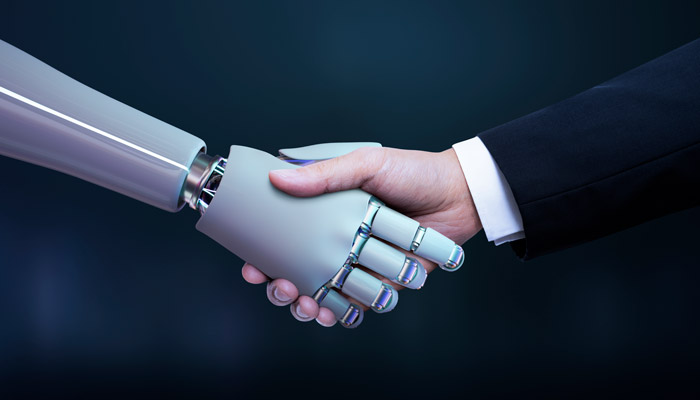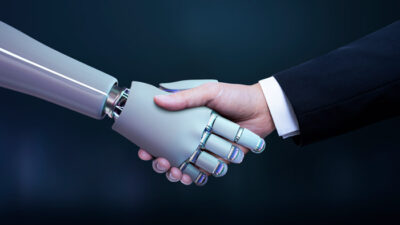Human resources has always been the lifeblood of an organization.
Now, let’s look at the integration and related effects that artificial intelligence, along with advancing technology, will bring to our lives from a different perspective.
The use of artificial intelligence in human resources can have an impact on many processes within companies, such as recruitment, assessment, performance management, training, and development. Here are some of them:
- Recruitment: Artificial intelligence can be used in CV screening and pre-selection processes. AI algorithms with large databases can identify candidates who meet specific criteria more quickly. This speeds up the recruitment process and allows for a more objective evaluation of candidates.
- Assessment: Artificial intelligence can objectively assess employees’ skills and performance. For example, methods like facial recognition technology and voice analysis can be used in interviews to evaluate performance.
- Performance Management: Artificial intelligence can track and analyze employee performance, providing feedback. AI-powered systems can identify employees’ strengths and areas for improvement.
- Training and Development: The use of artificial intelligence in training and development processes can provide personalized learning experiences. AI algorithms can suggest training programs tailored to employees’ needs or personalize content.
The use of artificial intelligence can increase efficiency, reduce costs, and enable more objective decision-making in human resources. However, it is important to address ethical and privacy concerns because AI systems also have the potential to subject people to discrimination.
Businesses can face various advantages and disadvantages by using artificial intelligence in human resources.
In this regard, the advantages are:
- Increased Efficiency: Artificial intelligence can automate human resources processes and perform predefined tasks related to the workforce. This saves time and effort, leading to increased efficiency.
- Improvements in the Recruitment Process: AI can conduct interviews, select suitable candidates, and even provide automatic feedback to potential candidates. This can accelerate the recruitment process and improve its quality.
- Data Analysis and Reporting: Artificial intelligence can analyze human resources data and provide detailed reports to businesses. It provides valuable information on workforce analysis, personnel performance, training needs, and more.
- Forecasting and Predictions: AI can make predictions for businesses regarding future workforce needs, turnover rates, attrition trends, and other relevant factors. This enhances planning and strategic decision-making processes.
Disadvantages:
- Human Impact: The use of artificial intelligence can reduce the human factor or even cause people to lose certain roles. This means that businesses need to manage their human resources strategies carefully.
- Biases and Errors: AI systems can lead to incorrect or biased outcomes. For example, unfairness based on factors like gender, ethnicity, or age may occur. Therefore, the use of AI in human resources applications should be conducted ethically and fairly.
- Risk of Neglect: AI systems may not experience or understand certain human resources issues. Therefore, it is important for businesses to be supported by human resources professionals.
Artificial intelligence technologies like machine learning have great potential to improve human resources processes and provide significant advantages to businesses. However, it is crucial to use them ethically, fairly, and with caution.
I hope this translation meets your requirements. If you have any further questions, feel free to ask!







